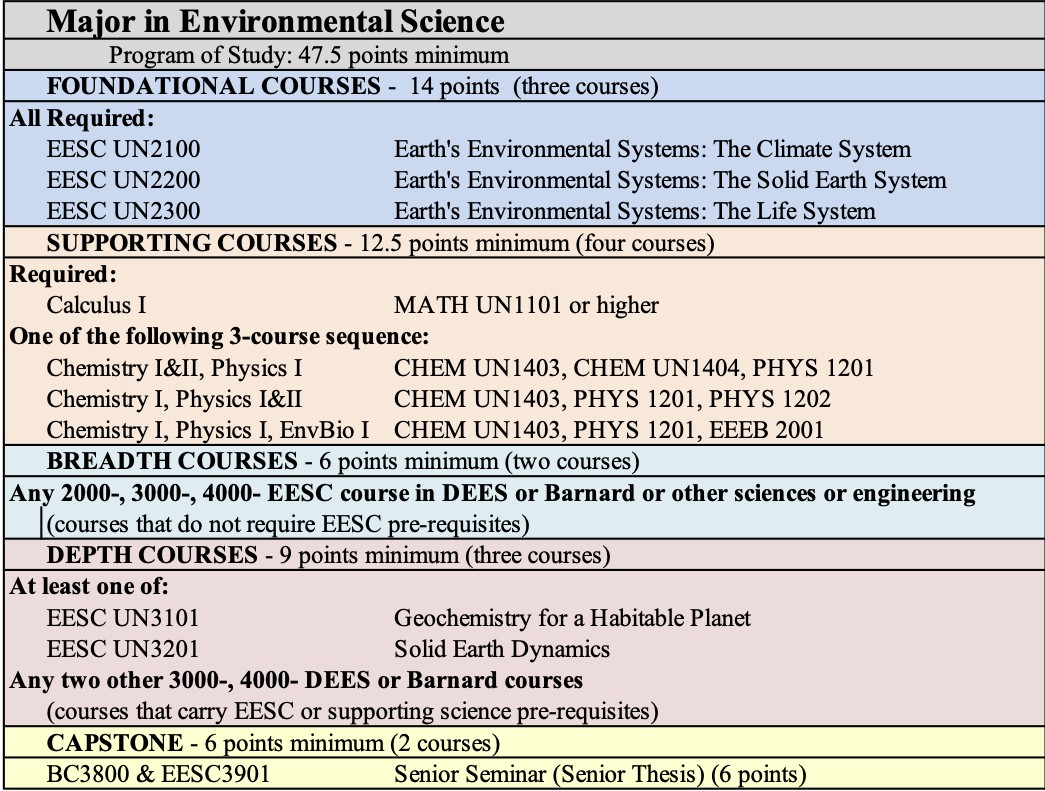Environmental Science Major
The major in Environmental Science focuses on the interaction between Earth's physical environment and the biosphere, on anthropogenic processes like pollution and global climate change, and on environmental remediation. The program is designed to provide students with a solid background in related science fields, then delve into particular fields in environmental science in greater depth. The major requires a minimum of 47.5 points to be completed.
An important requirement of the major is the senior capstone. The senior capstone experience is a culmination of what the student has learned throughout the major, in the form of a research thesis. The senior capstone is a requirement of the major, and students can complete the research with any of the department's affiliated institutions or with any other institute/faculty they feel would best guide their research forward, with department approval.
